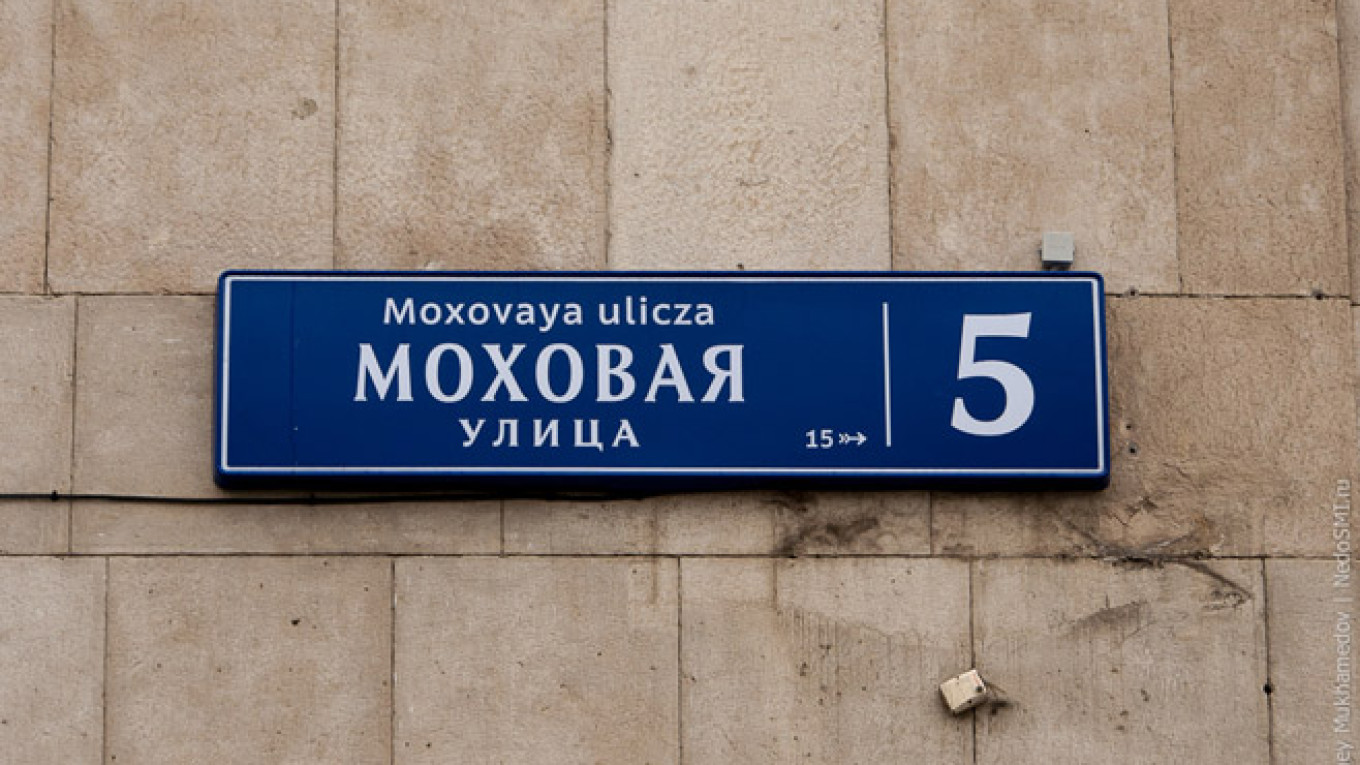The Russian capital has erected new street signs transliterated into Latin letters, but they may be of limited help to tourists because of their unusual spellings.
One example making the rounds in blogs and various media is the name of a downtown square that City Hall has rendered as "Xoxlovskaya ploshhad."
The spelling — which defies both Google Maps' standards and The Moscow Times' system — uses the Russian letter "x" rather than transliterating it as "kh," a sound that is much easier for non-Russian speakers to understand. Thus, "Xoxlovskaya Ploshhad" is usually written as "Khokhlovskaya Ploshchad" for foreigners.
Other examples include "Ulicza Volxonka," for what is more commonly known as "Ulitsa Volkhonka," and "Koly'mazhny'j pereulok" ("Kolymazhny" in The Moscow Times' spelling and "Kolymazhnyy" on Google Maps).
Online news site Gazeta.ru on Monday pinpointed the problem: City Hall has apparently been using a transliteration system originally intended only for online use.
The system was meant for people who only have Latin keyboards but want to write in Russian (a common occurrence among Russian emigrants in the 1990s), spelling their messages with Latin letters and then converting them to correct the Cyrillic spelling using computer programs.
The system is explicitly defined as being meant for phonetic use in the Russian state-approved technical standards system GOST, prominent blogger Sergei Mukhamedov said last Friday.
But this did not deter City Hall, which said it is not planning to make any tweaks to the spellings as it proceeds to install 110,000 new street signs by 2018, Gazeta.ru said.
Moscow allotted 20 million rubles ($500,000) in 2011 for the program to put up new street signs, Interfax reported at the time.
The measure was largely meant to make navigating around the city easier for foreign tourists. Moscow accommodated about 5.6 million tourists in 2013, City Hall said earlier.
Russia has struggled with rendering its street names for an English-reading audience before, most notably during the recent Sochi Olympics.
Many street names in the southern host city were translated from Russian — not transliterated — resulting in such? oddities as "Shotgun Street" and "Blue Dali Street," names clear to foreign visitors but completely unintelligible to locals.
A Message from The Moscow Times:
Dear readers,
We are facing unprecedented challenges. Russia's Prosecutor General's Office has designated The Moscow Times as an "undesirable" organization, criminalizing our work and putting our staff at risk of prosecution. This follows our earlier unjust labeling as a "foreign agent."
These actions are direct attempts to silence independent journalism in Russia. The authorities claim our work "discredits the decisions of the Russian leadership." We see things differently: we strive to provide accurate, unbiased reporting on Russia.
We, the journalists of The Moscow Times, refuse to be silenced. But to continue our work, we need your help.
Your support, no matter how small, makes a world of difference. If you can, please support us monthly starting from just $2. It's quick to set up, and every contribution makes a significant impact.
By supporting The Moscow Times, you're defending open, independent journalism in the face of repression. Thank you for standing with us.
Remind me later.


